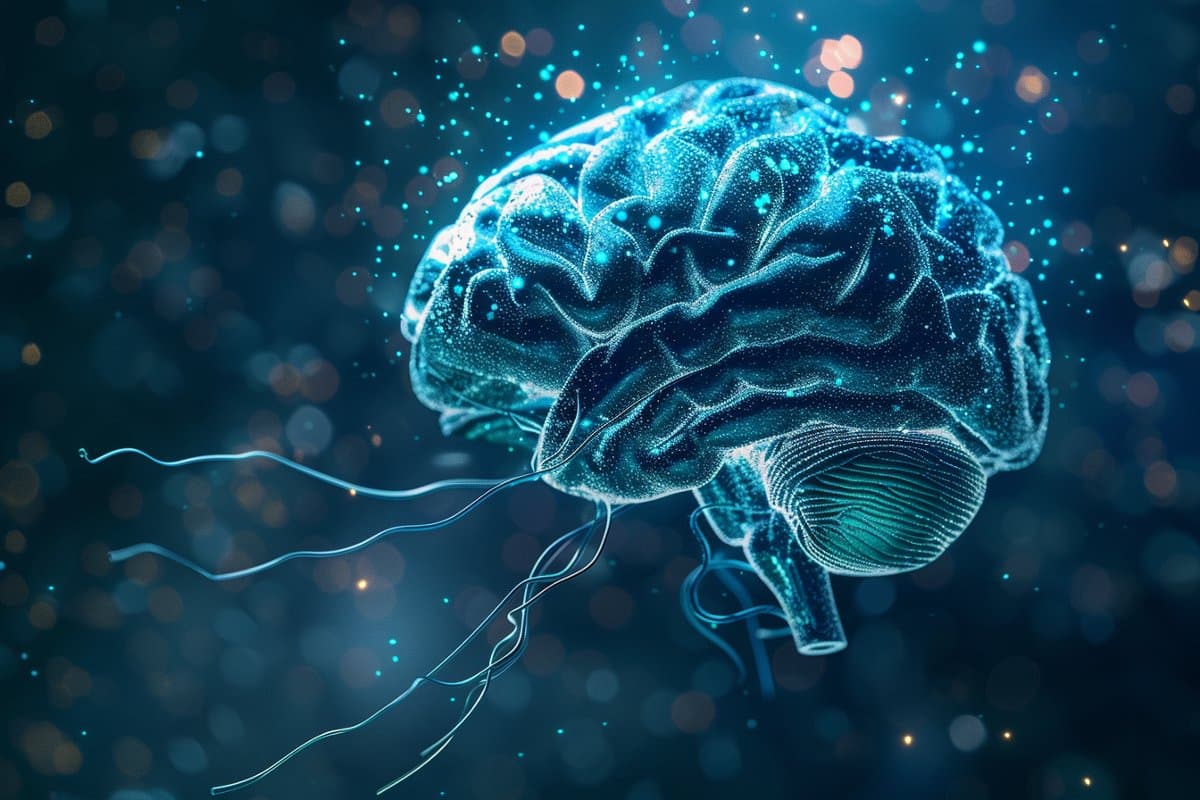If your doctor is competent AT ALL, s/he will make sure this type of research comes to exact conclusions as how to use this to prevent Alzheimers.
IS YOUR DOCTOR COMPETENT? Y/N?
CaMKII Can Be Regulated to Mitigate Alzheimer’s
Summary: The CaMKII protein, critical in brain and heart function, can be regulated to mitigate Alzheimer’s and heart conditions using three types of drug inhibitors. Their findings reveal that these inhibitors allow for precise assessments of CaMKII’s roles, providing a valuable tool for scientists across various disciplines.
This advancement could lead to significant progress in treating brain diseases by protecting against amyloid-beta plaques, a key factor in Alzheimer’s, without harmful side effects. The research offers a guideline for utilizing these drugs to explore the protein’s functions further, even for non-specialists in the field.
Key Facts:
- CaMKII Role: The CaMKII protein is essential in learning, memory, and heart function, but its misregulation can lead to serious health issues.
- Drug Inhibitors: Three distinct classes of drug inhibitors have been identified, enabling detailed studies on CaMKII functions and offering potential treatments for Alzheimer’s and heart conditions.
- Broader Impact: The research provides accessible tools for scientists without specialized knowledge in CaMKII, promoting further discoveries in its role across different biological systems.
Source: University of Colorado
The health impacts of a complex protein that plays a major role in the development of Alzheimer’s disease and heart conditions can be lessened by three kinds of drug inhibitors, according to scientists at the University of Colorado Anschutz Medical Campus.
In an overview of the protein and the inhibitors published today in the journal Cell Reports, the CU researchers discussed the best ways to use the interventions.

The protein, CaMKII, is ubiquitous in cells throughout the body but is perhaps best known for its prominent role in the brain and the heart. It is critical in learning and memory but if misregulated can cause problems.
“The most powerful engine to drive new discoveries on CaMKII functions may lie in the availability of three distinct classes of pharmacological inhibitors,” said the manuscript’s senior author Ulli Bayer, PhD, professor of pharmacology at the University of Colorado School of Medicine.
“These inhibitors now allow a detailed first assessment of CaMKII functions in any given system in a way that is readily accessible to a broad range of scientists without specialized interest in CaMKII research.”
Carolyn Nicole Brown, a graduate student working in Bayer’s laboratory, co-authored the manuscript.
The drugs now allow a detailed first assessment of CaMKII functions in any given system that’s accessible to a wide range of scientists.
Previous studies by Bayer’s lab revealed that inhibiting CaMKII activity protects against some of the effects of amyloid-beta (Abeta) plaques in the brain, a hallmark of Alzheimer’s disease (AD).
The researchers found one group of inhibitors, or drugs, that protected from the Abeta effects without detrimental side effects, making it potentially useful in treating a number of brain diseases.
Yet CaMKII is present in nearly every other cell. The review offers insights into the protein for those who don’t study it fulltime, providing tools to fill in the gaps in knowledge about how the protein functions.
“We are experts in studying this complex protein and here we provide a guideline for non-specialists to use these new tools,” Bayer said. “We are trying to make it easier for everyone.”
Brown, the co-author, agreed.
“The most important advances will be filling the gaps that we don’t even know about yet,” she said.
About this neuroscience research news
Author: David Kelly
Source: University of Colorado
Contact: David Kelly – University of Colorado
Image: The image is credited to Neuroscience News
No comments:
Post a Comment